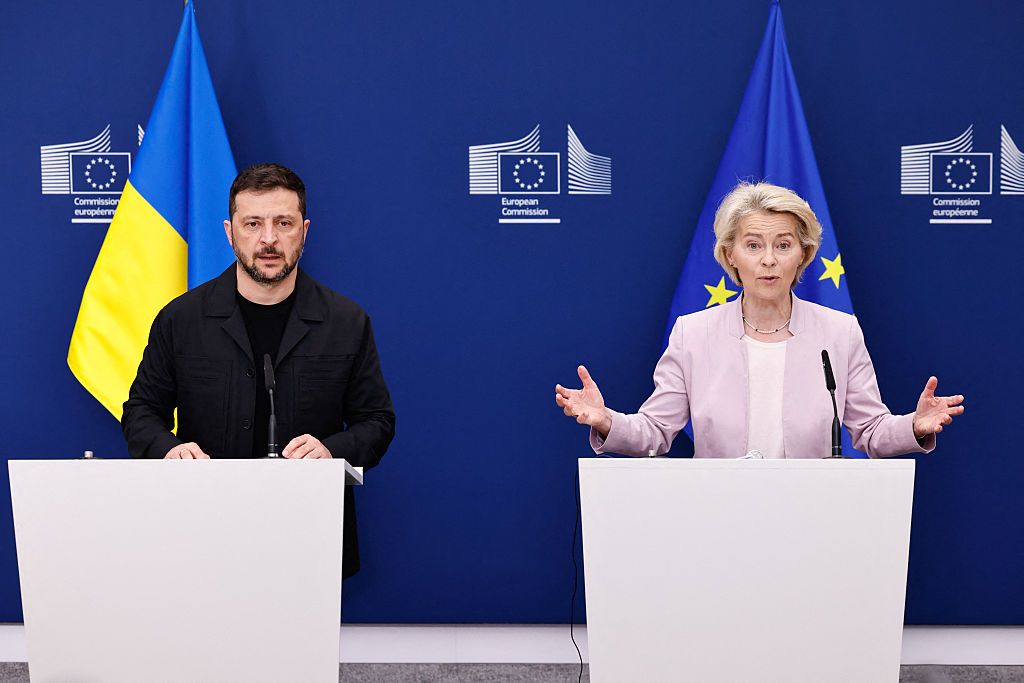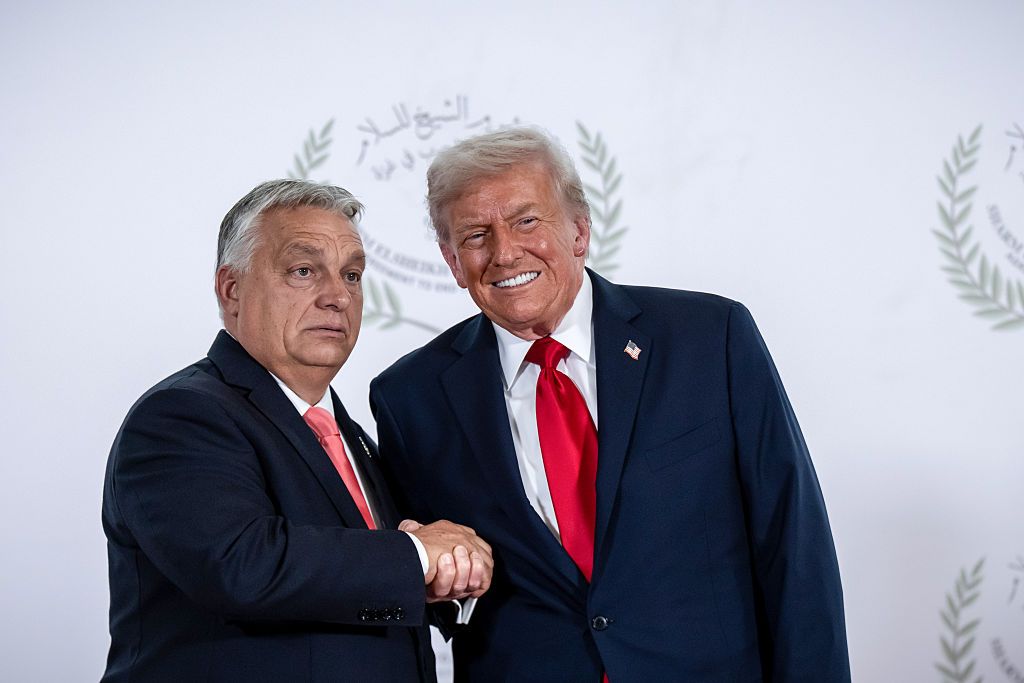EU Commission pushes for progress on Ukraine’s accession despite Hungary’s block

President Volodymyr Zelensky alongside EU Commission Chief Ursula von der Leyen in Brussels, Belgium, on March 6, 2025 (Nicolas Economou/NurPhoto via Getty Images)
BRUSSELS, Belgium — The European Commission is pushing to maintain momentum in Ukraine's EU accession bid despite political resistance from Hungary, EU Enlargement Commissioner Marta Kos said.
"The main issue now is that we need strong support also in the EU member states," Kos told a group of reporters, including the Kyiv Independent, ahead of the release of the EU annual review of the progress of candidate countries in their accession process set for Nov. 4.
According to Ukrainian and European officials involved in the preparation of the review, Kyiv is set to receive a positive outlook, improving its standing in a number of categories.
Tuesday's reports will come one month before EU leaders gather in Brussels for a scheduled summit where they are expected to discuss the next steps on enlargement for 2026.
Ukraine and Moldova are hoping to receive support from 26 out of the 27 EU member states and proceed with the accession process even if Hungary blocks the opening of accession clusters.
The talks are expected to be tense as the bloc confronts its recurring dilemma: delivering enlargement faster while still requiring unanimous approval from all member states at every stage of the process.
Kos said she expects EU member states to provide at least a political signal allowing technical work to continue, even if unanimity for opening of formal steps in the accession negotiations is blocked.
"What, in my opinion, must now be done is to simply give our (European Commission) services a message — or it could be a (EU summit) conclusion, it doesn't matter in which form," Kos said.
"If we cannot move on with unanimity — and we cannot move because of Hungary at this stage – we need negotiating positions and negotiating targets, so-called benchmarks, so that we can move forward on the working level," Kos said. "It may not be an official opening, but it will still enable us to work and keep the momentum for accession going."

A proposal from European Council President António Costa to adapt the rules and allow the opening of negotiation clusters by qualified majority instead of unanimity failed to gain support last month.
Kos noted that institutional reform of EU decision-making is unlikely right now but stressed the need to maintain a credible accession process to safeguard Ukraine and Moldova from Russian influence.
"We are not going into changing the decision-making process, because it is politically not realistic, but we need to find a way to keep a credible process running, so we ensure that we are not losing Ukraine and Moldova to Russia," Kos said.
"We need a robust process once we have closed the front door to Russia with your help. But I am confident that member states will not want us to open the back door for Russia's disinformation and hybrid interference," she added.
Hungary has, for more than a year, blocked the opening of the first cluster of accession talks — the "fundamentals" chapter covering democracy, human rights, rule of law, security, and public procurement.
Despite this, Kos said technical work continues across most areas of the accession process.
"Despite ongoing discussion in the Council on Cluster 1, we kept the pace of our work on all the other clusters — and this is what really matters," Kos said.

"When I was in Kyiv (in October), I was telling people: 'You don't need (Hungary's Prime Minister Viktor) Orbán to tell you what kind of reforms you have to do'."
A Ukrainian official involved in negotiations said that Ukraine is aiming to open all six clusters at once, something that might speed up the lengthy accession process. Hungary remains an obstacle to opening even one.
Asked by the Kyiv Independent whether the process could lose momentum under the upcoming Cypriot EU presidency — after two active presidencies led by Poland and Denmark had placed the issue high on the agenda — Kos said she remains optimistic.
"Presidencies may give different nuances to their programs, but enlargement will remain on the agenda," she said.










